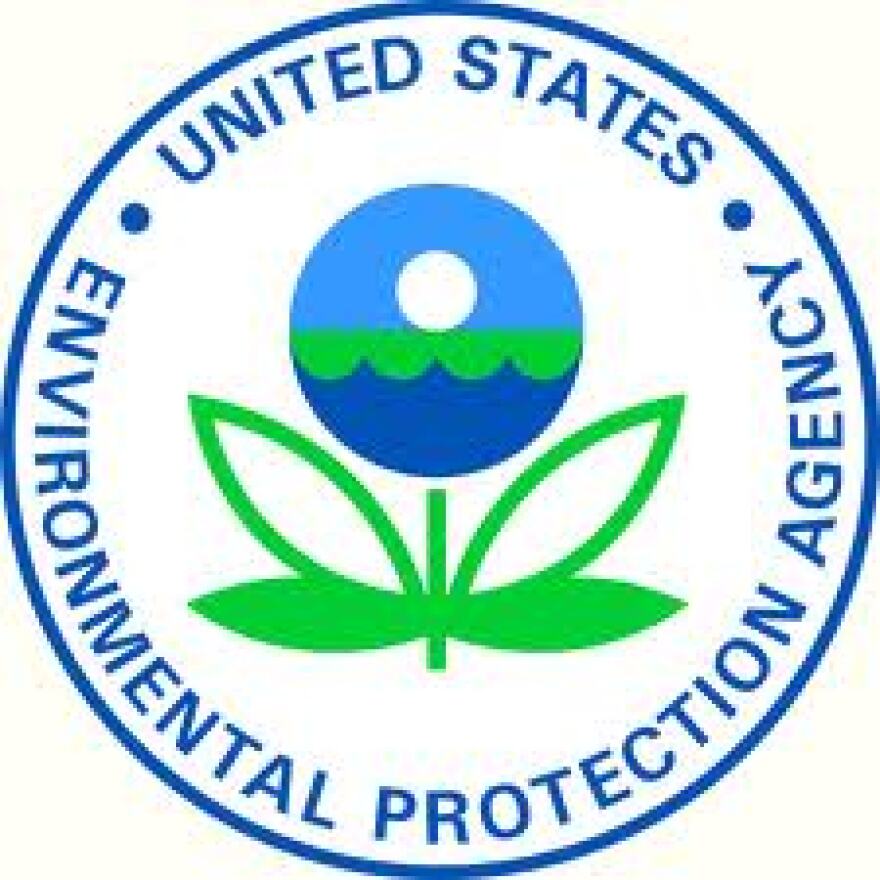A former drycleaner in Ballston Spa, New York is being investigated by the U.S. Environmental Protection Agency for the possible contamination of nearby homes. WAMC’s Southern Adirondack Bureau Chief Lucas Willard reports on the agency’s latest findings.
The former Rickett’s laundry site in Ballston Spa is familiar to many. The worn-down building sits north of the village’s main drag along Route 50.
A reason why the site hasn’t been re-developed is because it’s contaminated with chemicals.
A year ago, the EPA began collecting air samples from 50 homes surrounding the laundromat.
First, sampling equipment is placed on the first floor and basement of each home. The apparatus is then analyzed. EPA looks for chlorinated compounds, known carcinogens, to see if the chemicals have spread through groundwater and into vapor, seeping into homes.
As testing began last year, EPA On-Scene Coordinator Don Graham said the agency was testing for tiny concentrations to see if residents may have been chronically exposed to the chemicals.
“We’re measuring exposure over years as opposed to weeks or months,” said Graham.
Fast forward a year, a community update released this week says no action is necessary. It reads:
“Based on EPA’s assessment of the February 2017 sampling data, no corrective actions for vapor intrusion were required at any of the properties sampled. The concentrations of chemicals detected at the sampled properties were significantly below EPA's established target levels which were developed to be protective of human health."
There will be further testing. EPA says this winter, sampling will be done at 11 properties to confirm that no changes have occurred since last year.
Peter Iwanowicz, Executive Director of Environmental Advocates of New York, says brownfields, like those associated with old drycleaning sites, are far from uncommon in New York.
“You know, often we think of them as drycleaners when people didn’t understand the sort of toxic nature of the chemicals that were being used there. We didn’t have the standards that are in place now that guard against dumping but also just recapturing the air pollution that used to waft-off of drycleaners,” said Iwanowicz. “Those standards have been in place for 20 years and have been effective.”
As part of Governor Andrew Cuomo’s budget proposal, the Democrat announced legislation that he says “would streamline the application process of and maintain state funding at $2 million” for the state’s Brownfield Opportunity Program.
State grants through the program are awarded to communities to help redevelop contaminated sites.
According to the governor's office, proposed changes would:
- Streamline planning by eliminating the existing pre-nomination step and creating a single-step community-based process to achieve Brownfield Opportunity Area designation;
- Allow for existing plans or plans developed outside the Brownfield Opportunity Area process that meet general criteria to qualify for the program; and
- Allow existing Brownfield Opportunity Areas to apply for financial assistance for pre-development grants.
The Cuomo administration says last year, 62 certificates of completion were issued to brownfield cleanups, the highest annual total issued by the state Department of Environmental Conservation.
But Iwanowicz is concerned about the proposed deferments of tax credits in the governor’s budget.
He says that could hamper brownfield cleanup efforts…
“So in this instance, I think the streamlining of the Brownfields Oppurtinity Area Program grant process is good. But in the other section of the budget, they are deferring the payment of tax credits for several years. And one of the tax credits they’re deferring is the brownfield cleanup tax credit,” said Iwanowicz.
Iwanowicz says Environmental Advocates of New York will argue against the deferments over the next eight weeks.
A final state budget is due April 1st.




